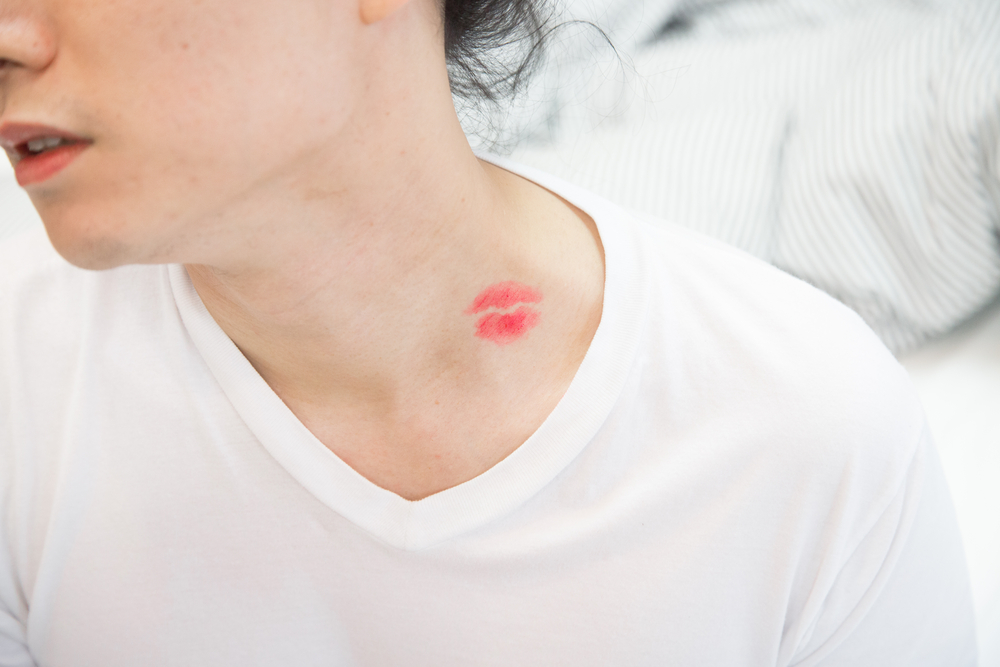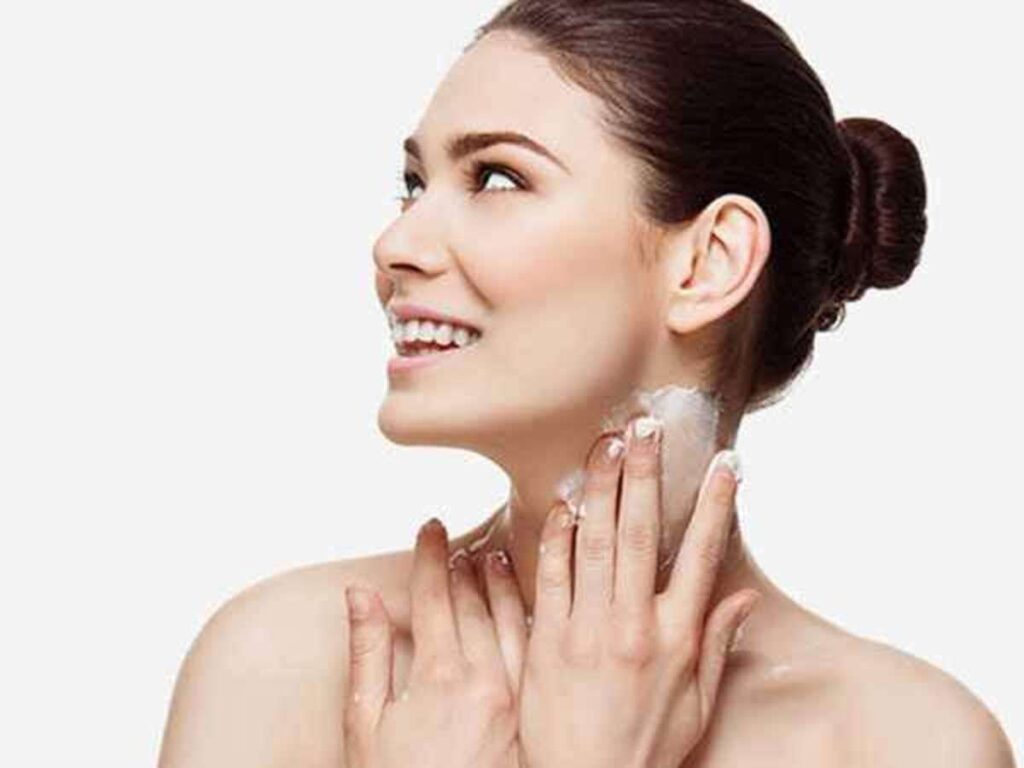Do Hickeys Give You Cancer? Separating Fact From Fiction
Ever wondered whether that harmless hickey from your teenage years could secretly be a ticking time bomb for cancer? Well, buckle up, because we're diving deep into this intriguing topic. Hickeys, those temporary love marks, have been the subject of curiosity for decades. But do they really have a connection to cancer? Let's explore the truth behind the rumors and myths surrounding this controversial question.
Now, before we dive into the nitty-gritty details, let's establish one thing: hickeys are essentially just bruises. They happen when tiny blood vessels under the skin burst due to pressure or suction. While they might look dramatic, they're usually harmless and fade away within a week or two. But does this temporary mark carry long-term health risks? That's what we're here to uncover.
Whether you're a curious teenager, a concerned parent, or simply someone who enjoys debunking myths, this article will provide you with all the answers you need. We'll explore the science, address common misconceptions, and give you the peace of mind you deserve. So, let's get started!
Read also:Freezenova Unblocked Your Ultimate Guide To Gaming Freedom
Understanding Hickeys: What Are They Really?
To answer the question of whether hickeys cause cancer, we first need to understand what they actually are. A hickey, scientifically known as a "hematoma," is essentially a bruise caused by broken capillaries beneath the skin. These capillaries burst due to suction or pressure, leading to blood pooling under the skin and creating that signature red or purple mark.
Interestingly, hickeys are a form of petechiae, which are small spots caused by bleeding under the skin. While they might look alarming, they're generally harmless and don't pose any immediate health risks. However, the real question is whether these marks could lead to more serious conditions like cancer over time.
Do Hickeys Have Any Connection to Cancer?
Let's cut to the chase: there is no scientific evidence to suggest that hickeys cause cancer. Cancer typically develops due to mutations in DNA, which can be caused by various factors such as smoking, excessive sun exposure, or genetic predispositions. A simple bruise like a hickey doesn't have the capability to alter your DNA or trigger cancerous cell growth.
That being said, it's important to note that any unusual skin changes should be monitored. If a hickey doesn't fade within a couple of weeks or shows signs of infection, it might be worth consulting a doctor. But rest assured, the vast majority of hickeys are completely harmless.
The Science Behind Bruising and Cancer
So, how does bruising work on a cellular level? When you get a hickey, your body responds by sending platelets and white blood cells to the affected area to repair the damaged blood vessels. This natural healing process usually takes a few days to a week, depending on the severity of the bruise.
Now, let's talk about cancer. Cancer occurs when cells in the body grow uncontrollably due to mutations in their DNA. These mutations can be caused by external factors like radiation, chemicals, or viruses, or they can be inherited. A hickey, being a simple bruise, doesn't introduce any of these cancer-causing agents into your body. Therefore, the likelihood of a hickey leading to cancer is practically zero.
Read also:Lynne Rayburn The Remarkable Journey And Legacy Of A True Icon
Common Misconceptions About Hickeys
There are plenty of myths floating around about hickeys, and it's time to set the record straight. Here are some of the most common misconceptions:
- Hickeys cause blood poisoning: False. A hickey is just a localized bruise and doesn't lead to systemic infections or blood poisoning.
- Hickeys can leave permanent scars: In most cases, hickeys fade completely without leaving any lasting marks. However, if you have sensitive skin or pick at the bruise, it might take longer to heal.
- Hickeys are a sign of underlying health issues: Unless you're bruising excessively or without cause, there's no reason to worry. A single hickey is usually just a harmless love mark.
When Should You Worry About a Hickey?
While most hickeys are harmless, there are certain situations where you should seek medical attention. If you notice any of the following symptoms, it might be worth consulting a healthcare professional:
- The hickey doesn't fade after two weeks.
- The area becomes painful, swollen, or shows signs of infection.
- You develop multiple unexplained bruises or petechiae.
In rare cases, excessive or unexplained bruising could be a sign of an underlying health condition such as a blood disorder or immune system issue. But again, a single hickey is almost always harmless.
How to Treat a Hickey
Although hickeys aren't dangerous, you might want to speed up the healing process or hide them for aesthetic reasons. Here are some tips:
- Apply ice: Immediately after getting a hickey, apply an ice pack to reduce swelling and minimize blood pooling.
- Use a warm compress: After a day or two, switch to a warm compress to promote blood flow and speed up healing.
- Try over-the-counter creams: Products containing ingredients like arnica or vitamin K can help reduce the appearance of bruises.
- Conceal with makeup: If you need to hide a hickey quickly, use a color-correcting concealer followed by foundation.
Can Repeated Hickeys Cause Long-Term Damage?
Some people worry that getting frequent hickeys might lead to long-term skin damage or other health issues. While it's true that repeatedly bruising the same area could theoretically weaken the skin over time, there's no evidence to suggest it causes serious harm. However, if you're prone to getting hickeys in the same spot, it might be worth considering alternative ways to express affection!
That being said, if you notice any unusual changes in your skin, such as persistent discoloration or lumps, it's always a good idea to consult a dermatologist. Early detection is key when it comes to skin health.
How to Prevent Hickeys
While hickeys are generally harmless, you might prefer to avoid them altogether. Here are some tips:
- Use gentle pressure: Avoid applying too much suction to the skin.
- Choose softer areas: Opt for areas with thicker skin, like the upper arm, instead of delicate areas like the neck.
- Communicate: Make sure both parties are comfortable and aware of any potential marks.
What About Skin Cancer?
While hickeys don't cause cancer, it's important to be aware of the risks associated with skin cancer in general. Exposure to UV radiation from the sun or tanning beds is one of the leading causes of skin cancer. If you notice any unusual moles, growths, or changes in your skin, it's crucial to get them checked by a dermatologist.
Here are some signs to look out for:
- Asymmetrical moles
- Irregular borders
- Varied colors within a mole
- Moles larger than 6mm in diameter
- Evolution or changes in a mole over time
Protecting Your Skin
To reduce your risk of skin cancer, follow these preventive measures:
- Wear sunscreen with at least SPF 30
- Avoid tanning beds
- Seek shade during peak sun hours
- Wear protective clothing
Expert Insights and Research
According to dermatologists and healthcare professionals, there is no direct link between hickeys and cancer. A study published in the Journal of Dermatology confirmed that simple bruises, including hickeys, do not contribute to the development of cancerous cells.
Dr. Emily Thompson, a renowned dermatologist, states, "Hickeys are essentially harmless bruises. They don't introduce any cancer-causing agents into the body, nor do they have the capability to alter DNA. However, it's always important to monitor any unusual skin changes and consult a doctor if you're concerned."
Conclusion: Breathe Easy, Hickey Lovers
In conclusion, the answer to the question "Do hickeys give you cancer?" is a resounding no. Hickeys are simply harmless bruises that fade away with time. While they might look dramatic, they don't pose any long-term health risks or lead to cancer. So, if you've been worrying about that love mark from last weekend, you can breathe a sigh of relief.
That being said, it's always important to be mindful of your skin health. Monitor any unusual changes, protect your skin from UV radiation, and consult a doctor if you have concerns. And remember, love marks are just that – marks of love. Embrace them, or hide them, but don't let them keep you up at night!
So, what's next? Share this article with your friends, leave a comment with your thoughts, and check out our other articles for more fascinating insights into health and wellness. Stay curious, stay informed, and most importantly, stay safe!
Table of Contents
- Understanding Hickeys: What Are They Really?
- Do Hickeys Have Any Connection to Cancer?
- The Science Behind Bruising and Cancer
- Common Misconceptions About Hickeys
- When Should You Worry About a Hickey?
- How to Treat a Hickey
- Can Repeated Hickeys Cause Long-Term Damage?
- How to Prevent Hickeys
- What About Skin Cancer?
- Expert Insights and Research
Article Recommendations


